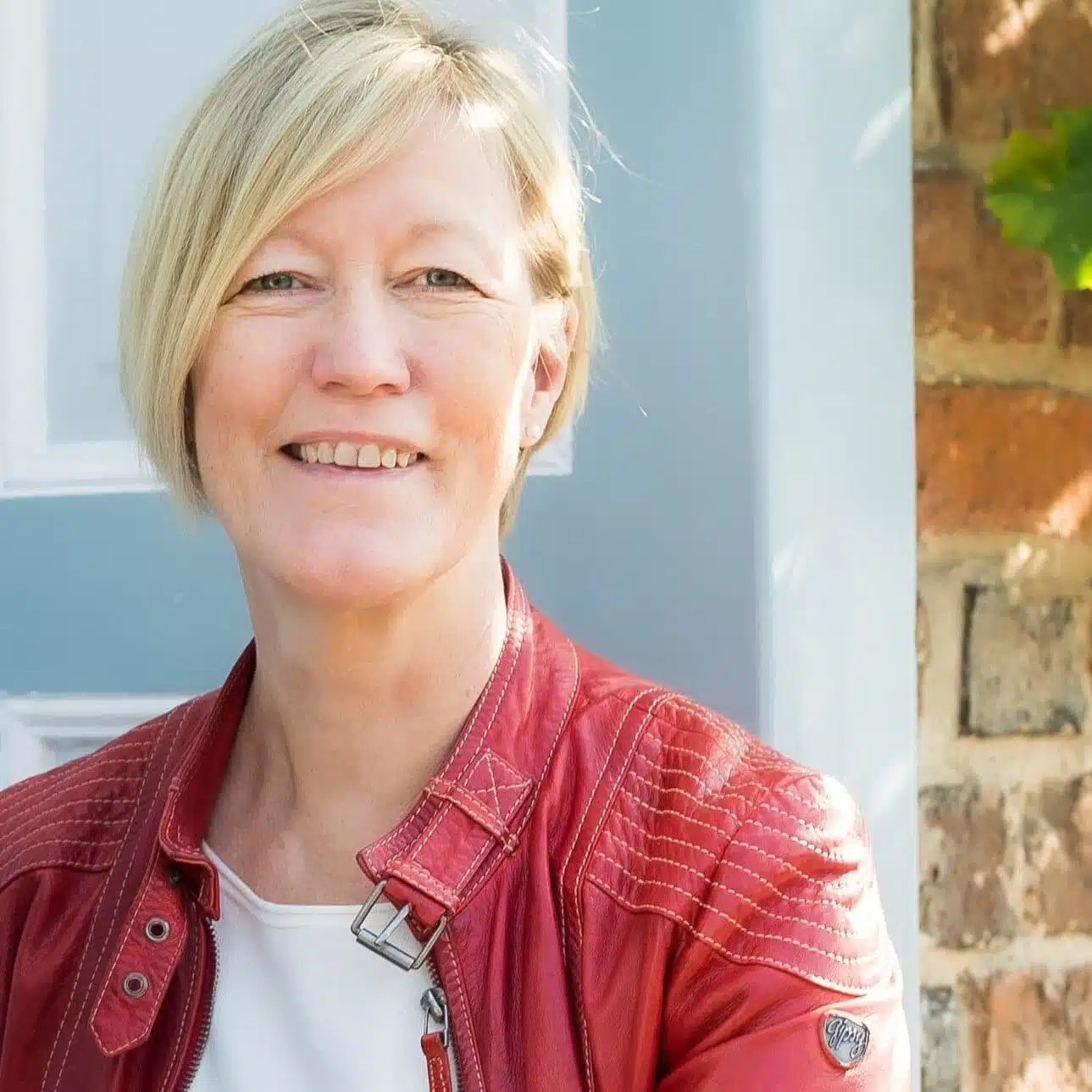Today I recommend taking a walk to Glockengießerstraße 25-29, to a somewhat hidden but very popular place in the Old Town – the Füchtingshof, Lübeck’s largest chartity, which was founded in 1639 and which is a convincing example of the social spirit of Lübeck merchants even in earlier times.
Whenever I pass by there and the heavy entrance gate is not closed because the residents are resting at noon, I try to scurry inside for a moment and let the splendour of the residential complex take its effect on me. I find the courtyard a unique oasis of tranquility. Sometimes I get into a conversation with one of the ladies living there, who is just enjoying a cup of coffee in the sunshine in front of her door.
The merchant Johann Füchting
In 1588 Füchting, who was born in Rittberg in Westphalia in 1571, joined his uncle Hermann Haselkampf in Lübeck. Here he completed a seven-year apprenticeship as a merchant. He then opened businesses first on Gotland and then in Lübeck, which developed successfully: Johann Füchting acquired two houses in Breite Straße and bought a large garden in front of the Castle Gate. This man seems to have had a keen sense of good business and the courage to take risks. While troops were fighting in the 30 Years War in large parts of the empire at the time, Füchting invested considerable funds in more than 60 new ships.
An ever-active person, who was obviously not filled with the activity of a merchant. As a member of the Skåne skippers, he soon became their elder. Füchting was elected a member of the city council in 1628, was a churchwarden at St. Mary’s, and served on the boards of various social institutions. Füchting also found happiness in his private life in 1604: he was married to his wife Margarete for 31 years. However, the marriage remained childless.
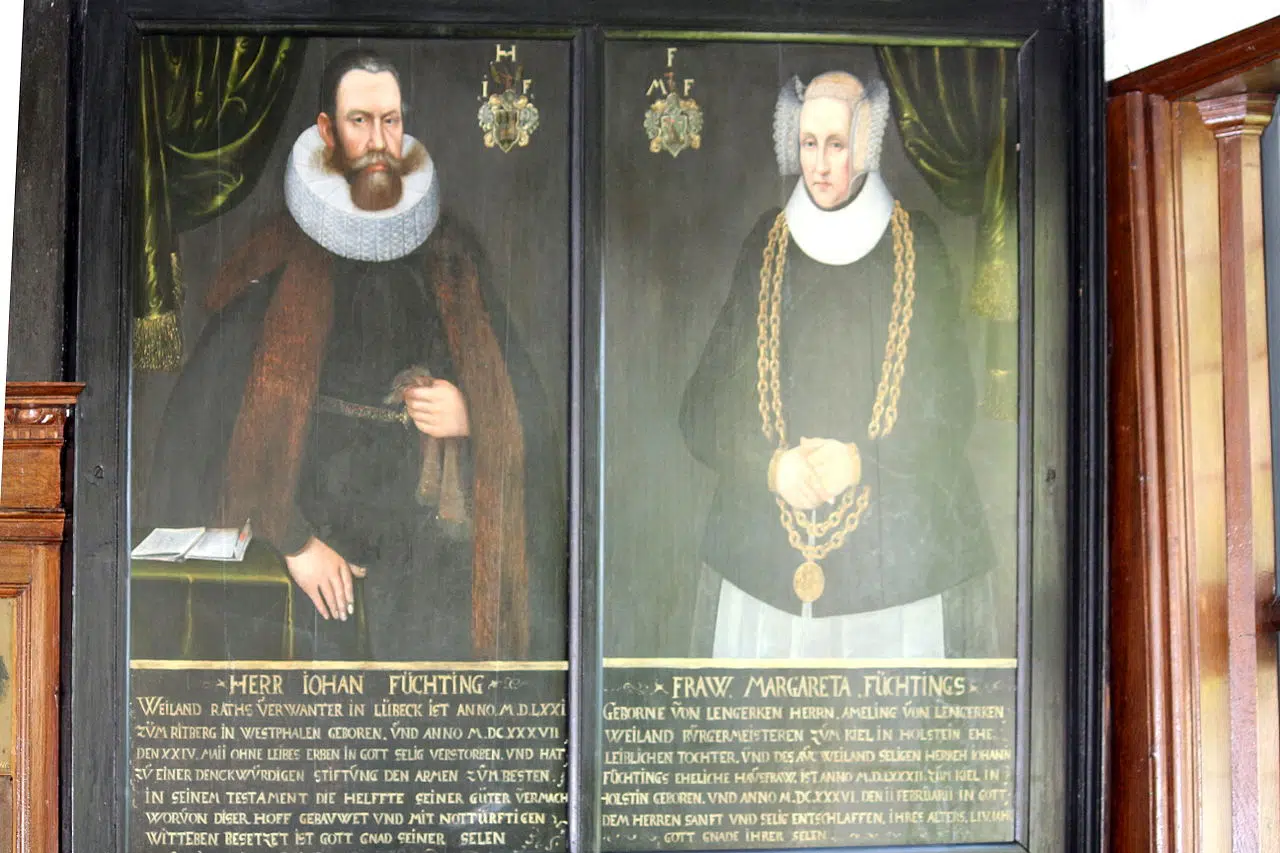
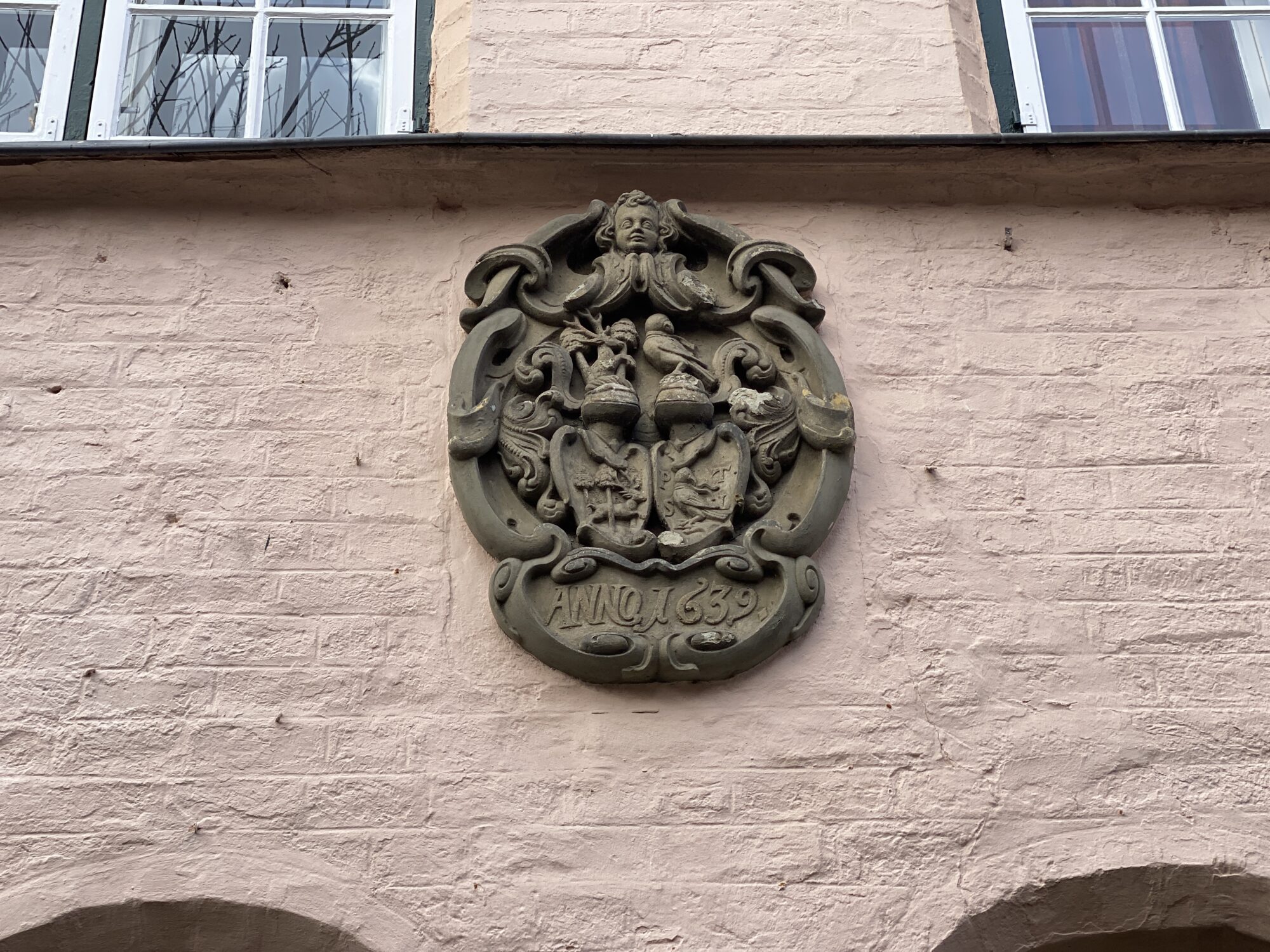
The Füchting Last Will
In 1636 Margarethe died and Johann Füchting drew up a will in which he confessed that “the many-gifted God had blessed him abundantly with temporal goods in his state and profession”.
With legacies and donations worth more than 80,000 marks, Füchting provided for the poor and the sick, the elderly and orphans, the plague and smallpox house, the “nonsensical girls” who lived in front of the Mühlentor city gate and all the maids in Breite Straße who had served their lordship faithfully for more than six years.
Johann Füchting left the interest of 500 Marks to St. Mary’s church “with the condition that the rulers may grant that after my death my epitaph may be erected by my testamentaries at the time of my burial at the pillar which is best suited for it“. The epitaph located in St. Mary’s has been preserved to this day.
The remaining part of his estate were given to his heirs and to a charity in equal shares: for God’s glory and for the benefit of the poor, and likewise for mine and my dear wife’s everlasting memory, also to other benevolent Christians blessed by the dear God for an example and succession”.
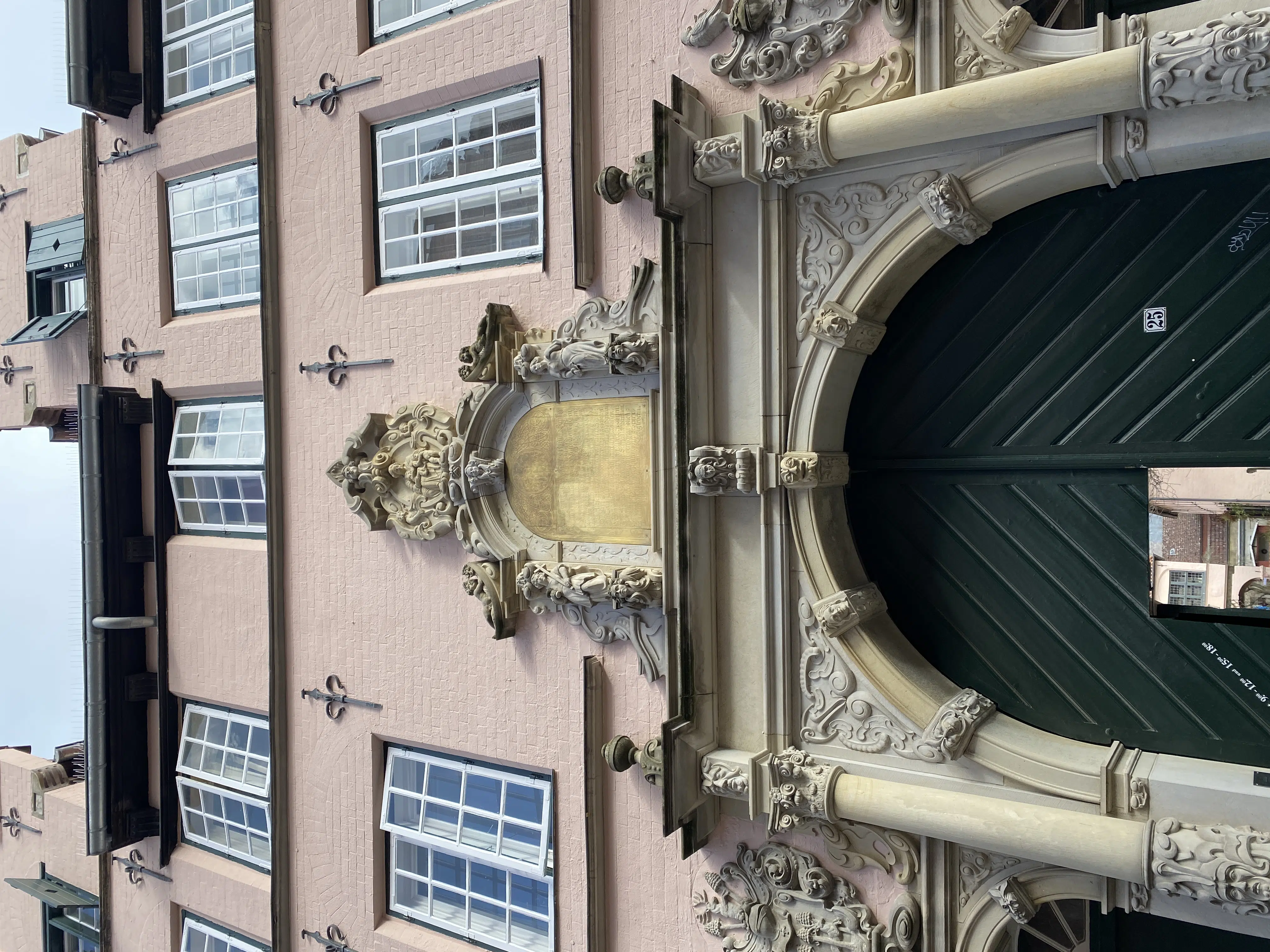
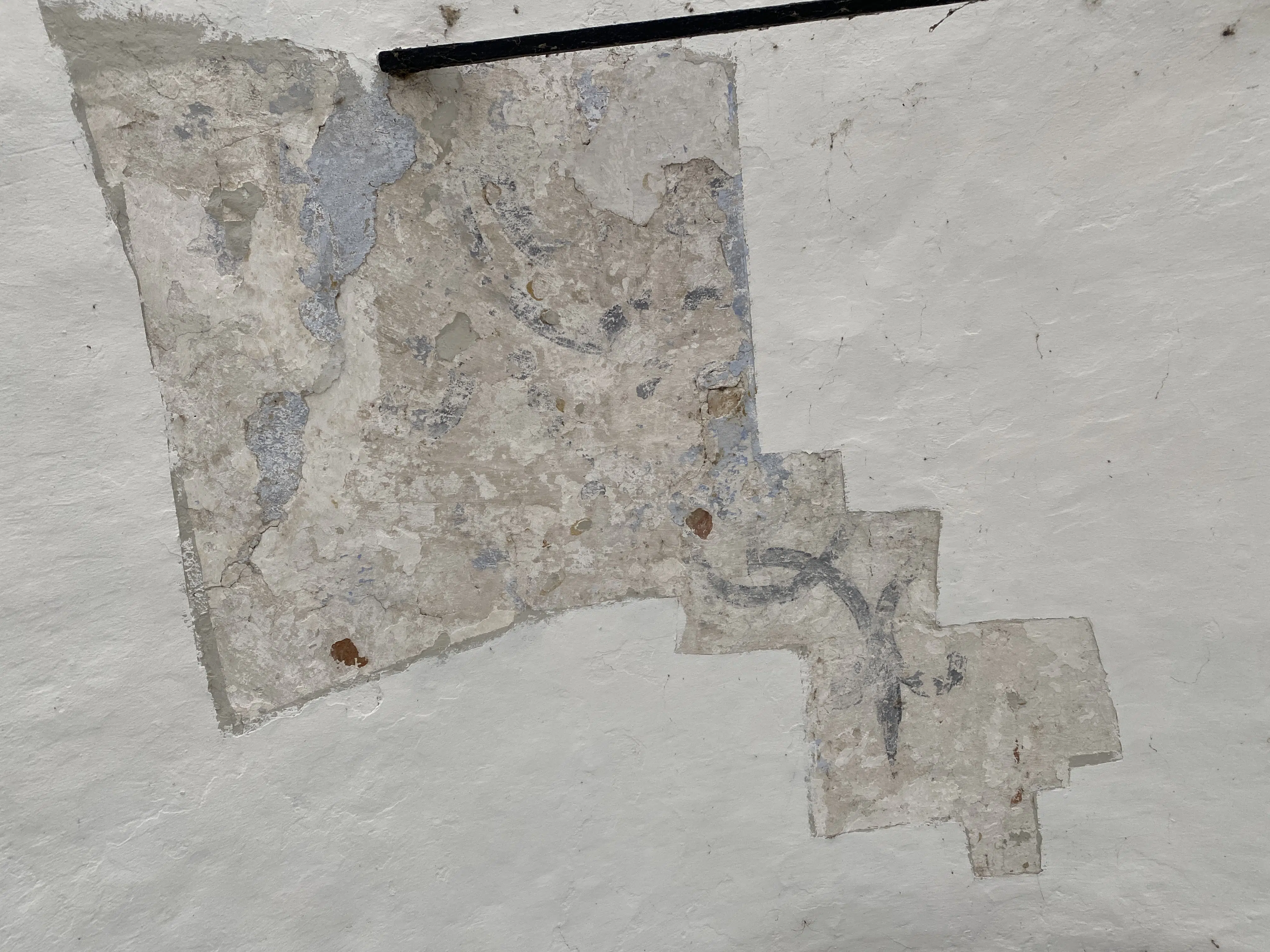
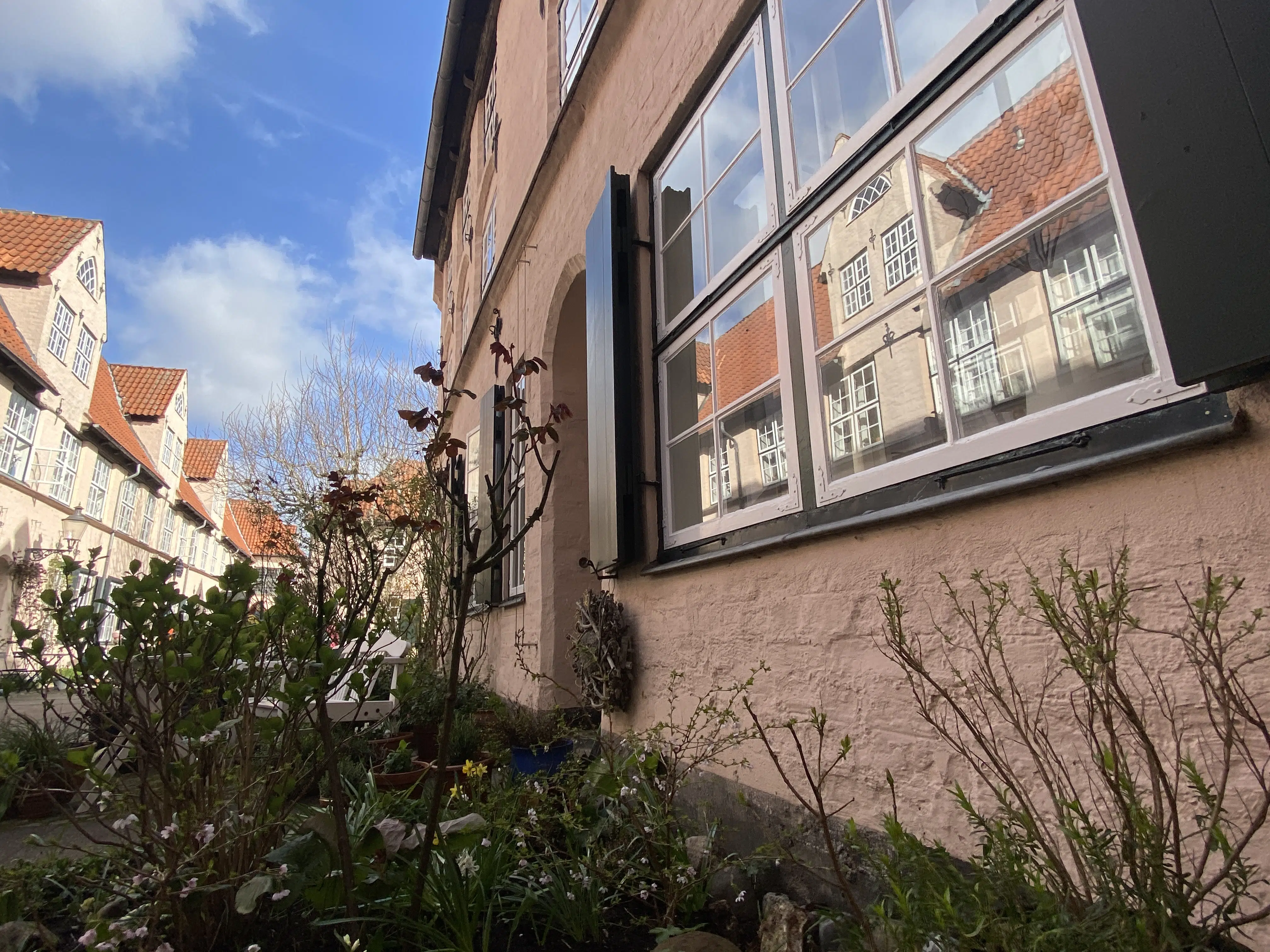
The Courtyard
In 1637 Johann Füchting died at the age of 66. The city’s master builder Andreas Jeger acquired a passageway from the merchant Christoffer Kuß together with a house in Glockengießerstraße. With the purchase of further adjacent houses and in the course of only two years the foundation stone for the Füchtingshof was laid. Since then, of course, many reconstructions took place, a comprehensive renovation was realized in 1975-1977.
Imposing to this day is the whitewashed brick facade in early Baroque style, with a richly decorated sandstone portal with the allegory of “Caritas” and the coat of arms of the founder. In the generously laid out courtyard complex on the left stands an elongated two-story building wing with a picturesque roof bay. On the right there are three individual buildings. In front of each of the entrances is a white bench. Flowerbeds and rosebushes embellish the brightly painted buildings in summer, behind which are hidden comfortable small apartments, which, by the way, are no longer lived in rent-free today.
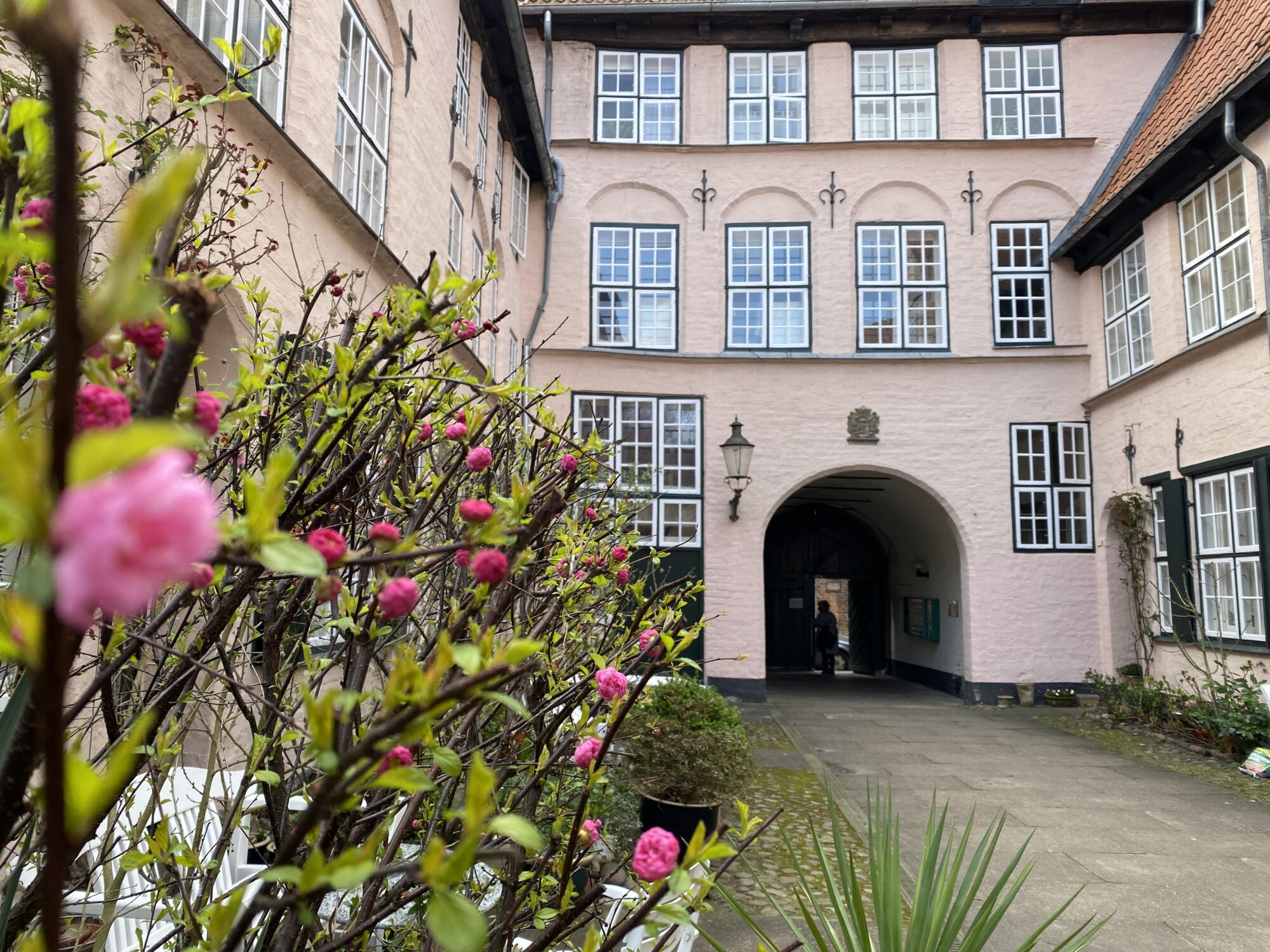
The Superintendent’s room
In the left side wing, the headmistress’ room (Vorsteherzimmer) has been established since 1653. The floor is made of yellow and green glazed tiles. The room has a splendidly carved door, precious paneling and a high side stove from 1653. The facility is more than 350 years old. This is the place where – you guessed it – the headmistress lived. On the Day of the Open Monument, the room is sometimes open to visitors.
“Since all the widows on this place have the benefit of the same to their If the children of the poor enjoy the privileges of the church because of their poverty, it is their duty to dress respectably and according to their situation, to refrain from all ostentatious finery and adornment, to live quietly, demurely and respectably, and not to miss the public church service in healthy days.
Extract from the court order of 1792
And you’re the one who decides everything!
Founders such as Johann Füchting were allowed to determine who and how many people of what social standing would later be allowed to live in their institution. If, for example, in Augsburg one had to be a citizen of the city, poor and Catholic to be admitted to the Fuggerei, Johann Füchting decreed that only needy merchants’ widows and a maximum of four mariners’ widows should be admitted. Virgins, on the other hand, were not to be accepted, “because according to the will of the testator it should be a women’s court and not a virgin’s court, so that the will of the Seel. Herr Defuncti’s will be followed“.The foundations were allowed to be lived in rent-free, but a “funeral fee” had to be deposited.
In the Füchtingshof and other charities, the residents received pocket money, the so-called “quarterly money”. The money – 10 marks Lübsch – was handed out on Easter Eve, St. John’s Eve, St. Michael’s Eve and Christmas Eve. Usually the rules of behaviour were also read to the ladies. With this in mind, it’s twice as nice to take a seat in a hidden spot in the Füchtingshof and let the tranquillity of the place take its effect on you. Maybe you will be invited for a cup of coffee by one of the residents.
